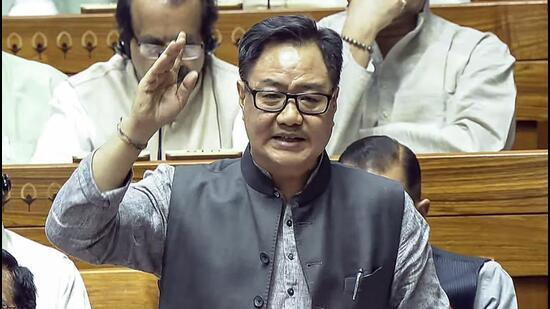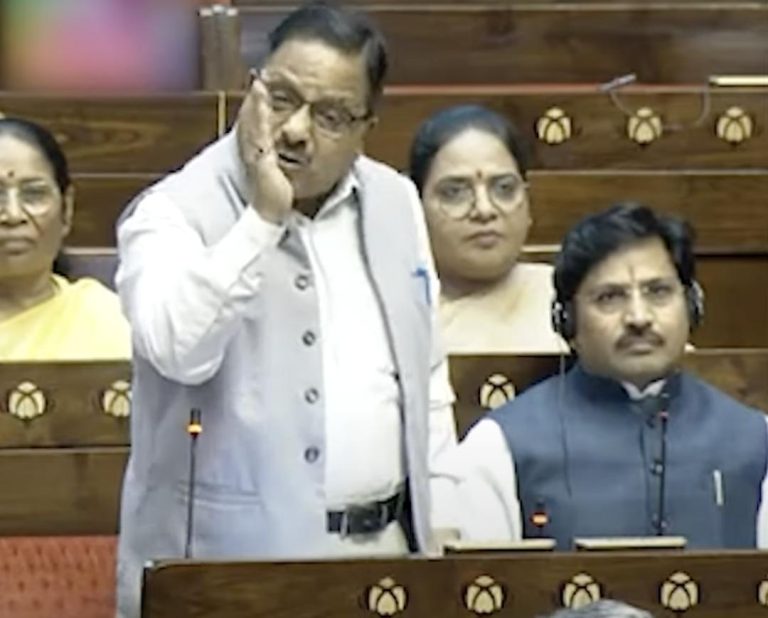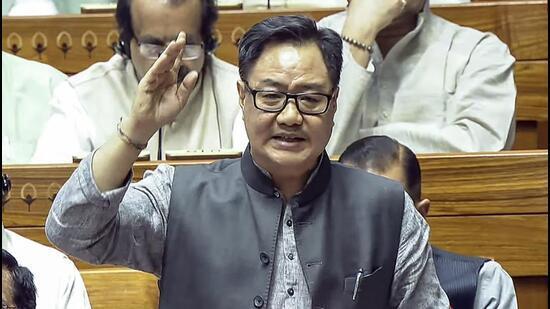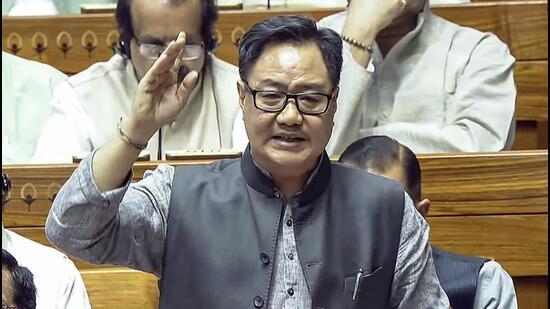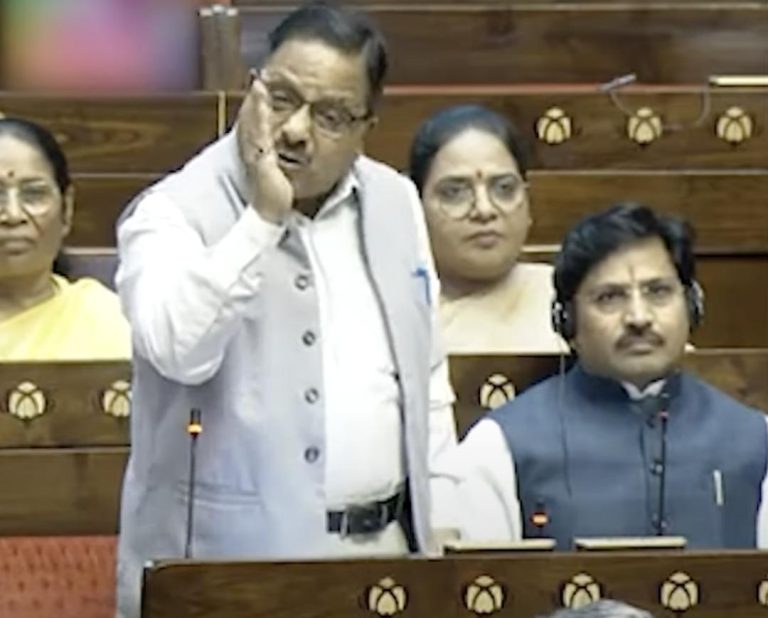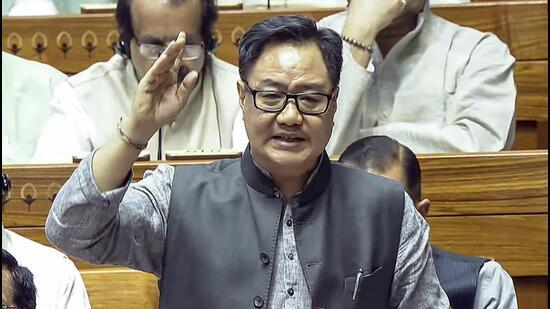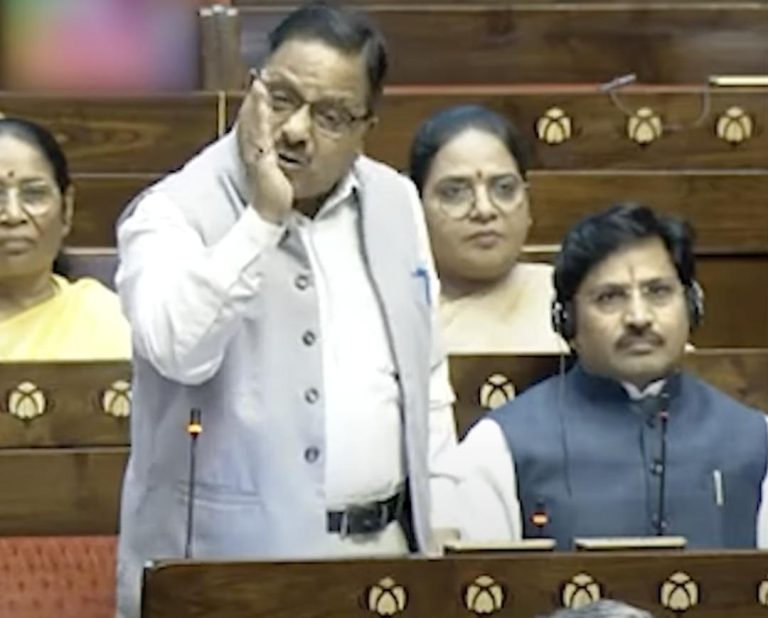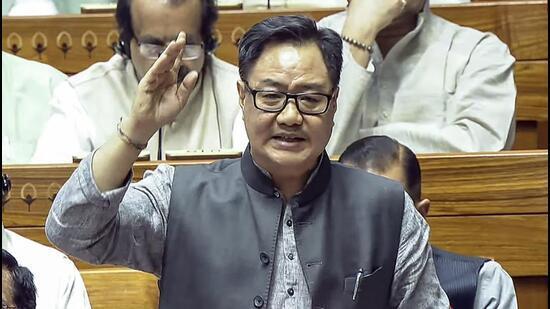
Opposition Creates Confusion & Leaves House: Rijiju in Rajya Sabha
The ongoing debates in the Rajya Sabha have taken a new turn, with Union Minister Kiren Rijiju criticizing senior members of the opposition for creating confusion and raising issues in the House, only to leave without listening to the replies. The minister made these remarks during discussions on the Waqf (Amendment) Bill, which has been a topic of intense debate among political parties.
Rijiju’s comments were directed at senior opposition member Kapil Sibal, who had compared the properties held by Waqf bodies with those of other religious bodies. The minister accused Sibal of creating confusion and not staying back to listen to the replies to his questions. This behavior, according to Rijiju, is not only unparliamentary but also hampers the democratic process.
The Waqf (Amendment) Bill aims to streamline the functioning of Waqf boards and ensure transparency in the management of properties held by these bodies. The opposition, however, has been raising concerns over the bill, claiming that it is an attempt by the government to undermine the autonomy of these boards.
Sibal’s comparison of Waqf properties with those of other religious bodies was seen as an attempt to highlight the alleged discrimination faced by Muslims in the country. The opposition member argued that the Waqf boards are not given the same autonomy and powers as other religious bodies, such as the churches or the gurdwaras.
However, Rijiju dismissed Sibal’s claims, saying that the Waqf boards are not comparable to other religious bodies. The minister argued that the Waqf boards are exempt from income tax and enjoy other concessions, which are not available to other religious bodies.
Rijiju’s criticism of Sibal and other opposition members has sparked a fresh controversy in the Rajya Sabha. The opposition has accused the government of trying to muzzle their voices and stifle their right to raise questions and concerns.
The Waqf (Amendment) Bill is not the only contentious issue currently being debated in the Rajya Sabha. The opposition is also raising concerns over several other bills, including the Triple Talaq Bill and the National Medical Commission (NMC) Bill.
The Triple Talaq Bill, which seeks to criminalize the practice of triple talaq, has been a subject of intense debate among political parties. The opposition has accused the government of trying to impose its own brand of Hindutva on the country, while the government has argued that the bill is necessary to protect the rights of Muslim women.
The National Medical Commission (NMC) Bill, on the other hand, seeks to replace the Medical Council of India with a new body. The opposition has accused the government of trying to undermine the autonomy of the medical profession and impose its own brand of politics on the health sector.
The Rajya Sabha has been a battleground for political parties in recent times, with the opposition accusing the government of trying to stifle their voices and stifle the democratic process. The Waqf (Amendment) Bill is just the latest example of the intense political drama currently unfolding in the House.
In conclusion, Rijiju’s criticism of Sibal and other opposition members has sparked a fresh controversy in the Rajya Sabha. The opposition has accused the government of trying to muzzle their voices and stifle their right to raise questions and concerns. The Waqf (Amendment) Bill is a contentious issue that has sparked intense debate among political parties, and it remains to be seen how the government will respond to the opposition’s concerns.
